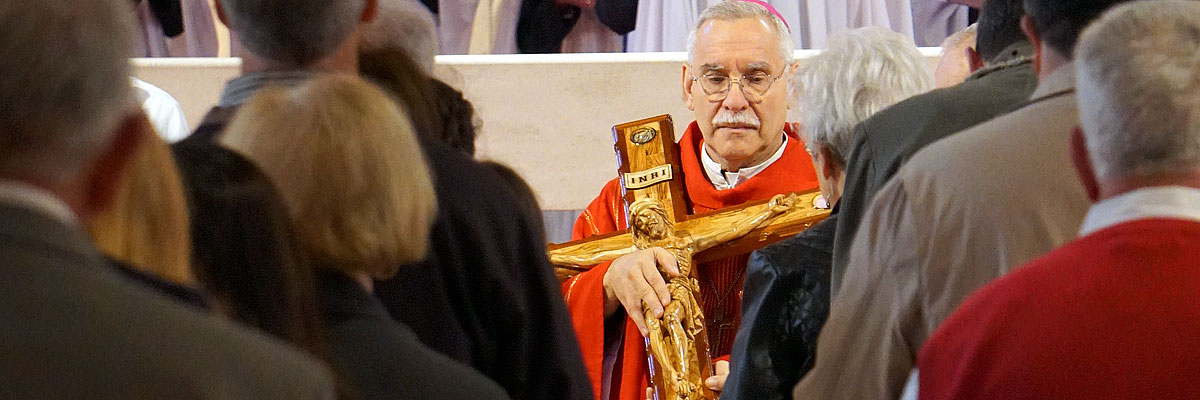Official Website of the
Catholic Diocese of Little Rock
The Book of Psalms can feed our hungry, hurting hearts even today
Published: June 17, 2006
By Betsy Wiederkehr Huss
“All you nations, praise the Lord. All you people, praise him because the Lord loves us very much, and his truth is everlasting. Praise the Lord!” (Psalm 117) The Psalms, the Old Testament’s collection of ancient Israel’s prayer and worship, are a wonderful part of Scripture and liturgy. The intense expression of emotions, the vivid imagery and the poetic verse the psalmists used to communicate to God in praise, in laments, in celebration and in prayer by an individual or in community are still relevant. The five books of the Psalter express our hearts hunger for God. The Psalms can still be our praise and worship book today. Originally the Psalms were “sung prayers or prayed singing,” as Claus Westermann, author of “The Psalms: Structure, Content & Message” reminds us in his book. As songs they are also poetry. Westermann goes on to write, “They are prayers (words directed to God in supplication or rejoicing), poetry (poetical expressions of thought), and song (they go beyond the mere speaking or even recital of a poem and become music).” This trio is united in such a way in the Psalms that we may not fully appreciate or understand them in today’s world. But, Westermann continues, “precisely because of their strangeness they speak from that distance a language which possesses validity for every age and which can be heard anew in every age. The Psalms are inexhaustible.” It is a noted fact that in previous decades when catastrophes happened, the Psalms were rediscovered, so to speak, by various people in different places. *According to Westermann, people “found in them something by which our often weak and anemic praying can be renewed: an immediacy or directness of speaking to God which connects reality in all of its breadth, depth and harshness with the God who is the Lord of both the righteous and the wicked, the God of the depths and the heights, the Lord of creation and the Lord of history.” Have you read the Psalms lately? Or even truly listened to the responsorial psalm during Mass? Have you allowed the richness of these songs — these prayers to permeate your heart? Do you dare speak to God like the psalmist in the lament of Psalm 13? I doubt the first four verses were spoken calmly as the person addresses God. These words for me conjure up a picture of a hurting, sad, angry teenager questioning a parent. Kind of like we do or think of doing with God sometimes. Then, you have this almost unbelievable change of mood in verses 5-6. Now, there is hope in the voice — in the heart. Well, the person was speaking to God. Perhaps, they remembered God’s faithfulness. The Psalms can bring life back into one’s heart … soul … mind … and faithfulness to God. Why not give the Psalms a reread in a new version or take them to heart for the first time. Either way, we learn these ancient prayers are still relevant to us today. By doing this, our hungry hearts will encounter life and God and be renewed. And then, who knows what could happen! Betsy Wiederkehr Huss, a member of Blessed Sacrament Church in Jonesboro, has a master’s degree in theology from Fuller Theological Seminary in Pasadena, Calif.









